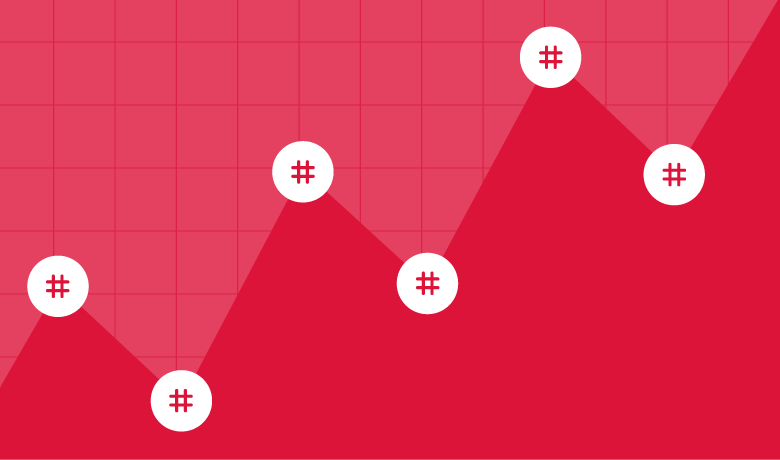In the fast-paced world of digital marketing, staying ahead of trends is crucial for success. One such trend that has become a cornerstone in social media marketing is hashtag analysis. From its humble beginnings to its current impact on content visibility, this article delves into the intricate world of hashtag trend analysis.
Evolution of Hashtags
1. Origin and Early Usage
Hashtags were first introduced on Twitter in 2007 as a way to categorize and group discussions. What started as a simple idea soon gained popularity due to its effectiveness in organizing content.
2. Popularity Surge on Social Media
The use of hashtags exploded across various social media platforms, including Instagram, Facebook, and LinkedIn. Users embraced hashtags as a means of expressing creativity, joining conversations, and discovering new content.
Significance in Social Media Marketing
1. Enhancing Content Visibility
Hashtags play a pivotal role in increasing the discoverability of your content. Strategically chosen hashtags can expose your posts to a broader audience beyond your immediate followers.
2. Building Brand Awareness
Creating and promoting branded hashtags can foster a sense of community among your audience. This, in turn, strengthens brand loyalty and awareness.
Hashtag Trend Analysis Tools
1. Google Trends
A valuable tool for tracking the popularity of search queries, Google Trends can also be utilized to analyze the rise and fall of specific hashtags.
2. Social Media Analytics Platforms
Dedicated analytics platforms provide in-depth insights into hashtag performance, helping marketers make informed decisions.
Creating Effective Hashtags
1. Understanding Your Audience
Tailor your hashtags to resonate with your target audience. Analyze their interests, preferences, and online behavior.
2. Researching Popular Hashtags
Stay informed about trending hashtags within your industry. Incorporate a mix of popular and niche hashtags for a balanced approach.
3. Combining Trending and Niche Hashtags
Strike a balance between using popular, widely-used hashtags and more specific ones. This approach ensures visibility within broader conversations while reaching a targeted audience.
Impact on SEO
1. Hashtags and Search Engine Algorithms
While hashtags themselves may not directly impact SEO, their use can contribute to increased visibility on search engine results pages (SERPs).
2. Integrating Hashtags into Content Strategy
Crafting content around trending hashtags can align your brand with current discussions, potentially improving search engine rankings.
Challenges in Hashtag Trend Analysis
1. Algorithm Changes on Social Media Platforms
Social media platforms frequently update their algorithms, affecting hashtag performance. Staying adaptable is key to overcoming these challenges.
2. Oversaturation of Popular Hashtags
Using overly popular hashtags may result in your content getting lost in a sea of posts. Strategic hashtag selection is crucial to avoid oversaturation.
Utilizing User-Generated Content
1. Encouraging Audience Participation
Encourage your audience to create and share content using your branded hashtags. This not only boosts engagement but also provides a stream of user-generated content.
2. Showcasing User-Generated Hashtags
Highlighting user-generated content on your platforms fosters a sense of community and encourages others to participate.
Measuring Hashtag Performance
1. Metrics to Evaluate
Track metrics such as reach, engagement, and conversion rates. Use these insights to refine your hashtag strategy.
2. Adjusting Strategy Based on Analytics
Regularly analyze performance data and adapt your hashtag strategy accordingly. Flexibility is key in the ever-evolving landscape of social media.
Future Trends in Hashtag Trend Analysis
1. Emerging Technologies
Advancements in artificial intelligence and machine learning are poised to revolutionize hashtag analysis, providing more accurate predictions of trending topics.
2. Predictive Analytics in Hashtag Trends
The integration of predictive analytics will enable marketers to stay ahead of trends, allowing for proactive rather than reactive hashtag strategies.
Tips for Small Businesses
1. Leveraging Local Hashtags
Small businesses can benefit from using local hashtags to connect with the community. This enhances visibility among potential customers in the vicinity.
2. Collaborating with Influencers
Partnering with influencers who align with your brand can amplify the reach of your hashtags. Their endorsement adds credibility and attracts a larger audience.
Social Listening and Hashtags
1. Monitoring Conversations
Social listening tools help monitor conversations around your brand and industry. This real-time data can inform your hashtag strategy.
2. Responding to Hashtag Trends
Actively participate in trending conversations by incorporating relevant hashtags. This not only boosts visibility but also positions your brand as current and engaged.
Integrating Hashtags Across Platforms
1. Consistency in Hashtag Usage
Maintain consistency in hashtag use across different platforms. This cohesive approach strengthens your brand’s identity and makes it easier for users to find your content.
2. Tailoring Hashtags for Each Social Network
Adapt your hashtag strategy based on the platform’s unique features and user behavior. Tailoring hashtags enhances their effectiveness on specific networks.
Conclusion
In conclusion, hashtag trend analysis is a dynamic and indispensable component of modern digital marketing. From its humble origins to its powerful impact on content visibility, hashtags have evolved into a strategic tool for brands to engage with their audience and stay relevant. By understanding the nuances of hashtag analysis, businesses can navigate the ever-changing landscape of social media and establish a compelling online presence. Request a demo from AIM Technologies now!
FAQs
How do hashtags impact search engine rankings?
- While hashtags themselves don’t directly affect SEO, their strategic use can increase content visibility on search engine results pages.
What are some common challenges in hashtag trend analysis?
- Challenges include algorithm changes on social media platforms and the risk of oversaturation with popular hashtags.
Why is user-generated content important in hashtag strategies?
- User-generated content fosters community engagement and provides a continuous stream of authentic content for brands.
How can small businesses benefit from hashtag analysis?
- Small businesses can leverage local hashtags and collaborate with influencers to enhance visibility and reach a targeted audience.
What role do emerging technologies play in the future of hashtag analysis?
- Advancements in AI and predictive analytics are set to revolutionize hashtag analysis, providing more accurate trend predictions.





